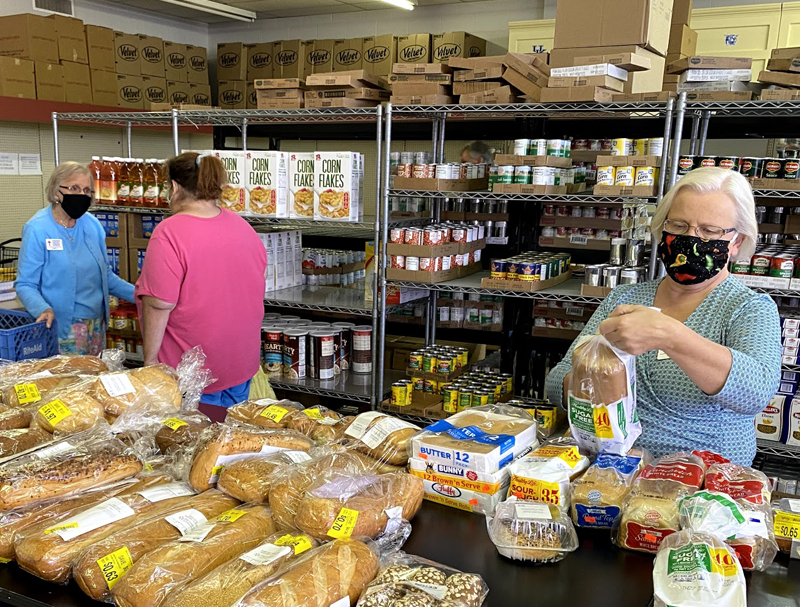Libraries
When residents stayed home at the start of the pandemic, libraries became a steady source of entertainment for children. Libraries across the region created an assortment of new or improved programs.
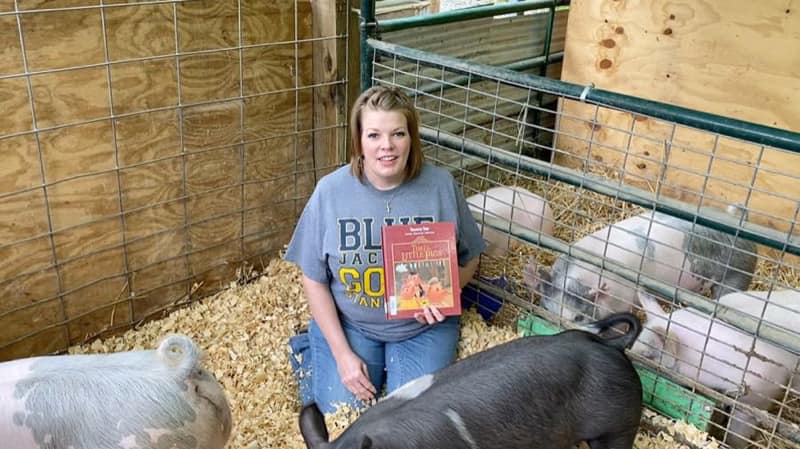
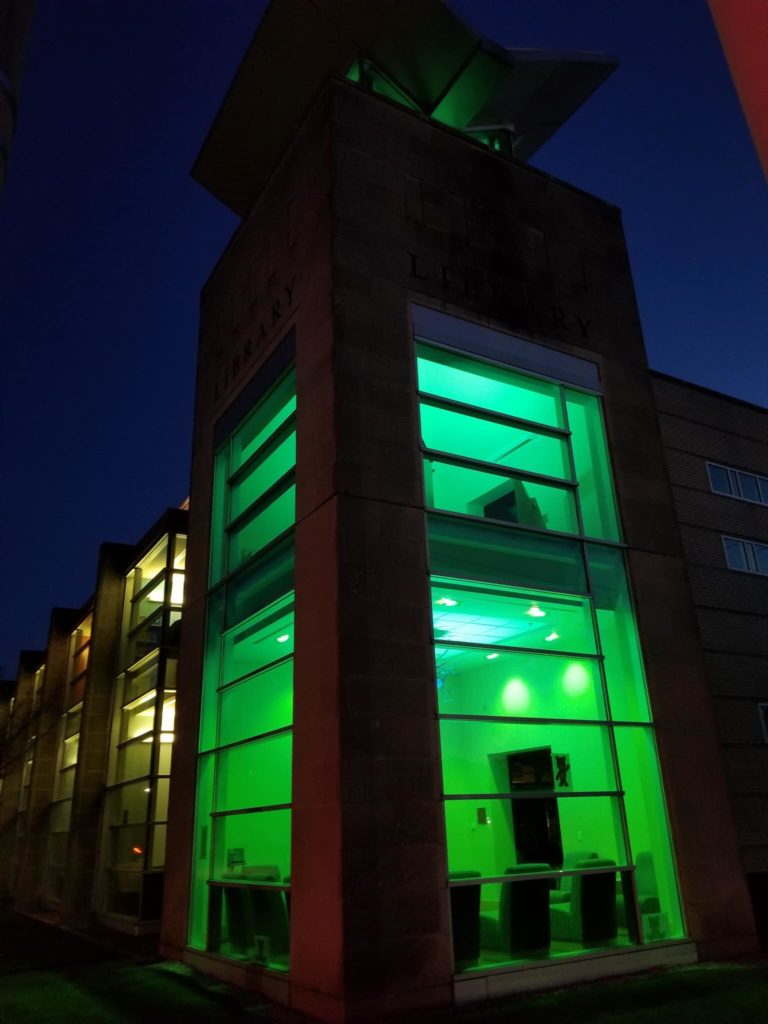
Adaptive Library Programs
- Contactless checkouts
- Curbside pickup
- Mobile hotspots
- Take-and-make activity kits
- Online book readings
- Porch deliveries
- Outdoor book walks
- Online trivia nights
- Bookmobile deliveries to assisted living facilities
- Online streaming of readings to farm animals
Senior Centers
Senior centers were quick to shut down at the start of the pandemic. Since the elderly are at higher risk of serious cases of COVID-19, shutdowns reduce their exposure to the virus. For some seniors, however, going to the senior centers for meals and activities was the only opportunity for socialization. The shutdowns cut this option for the elderly.
Across the region, meal delivery and curbside pickups increased as the pandemic brought greater need. The demand for more meals without additional funding represented a concern. In the fiscal year 2019, months before COVID-19 became a pandemic, 182,876 senior meals were served across all GRADD counties. As COVID took hold in FY 2020, this number increased to 225,794. In FY 2021, 353,340 meals were served, nearly doubling pre-pandemic numbers. For the fiscal year 2022, as of May 31, eligible residents in the region have received 231,415 meals. FY 2022 is the first year after COVID-19 where meal deliveries were reduced, initiating a curve towards pre-pandemic levels.
Already delivering to a heightened number of clients – 125 at its peak during the pandemic – a total loss fire at the McLean County Senior Center added an extra level of difficulty to an already stressful situation. Senior Center staff transitioned to serving meals out of the community room at Livermore City Hall. A United Way grant furnished supplies like plates, cups, and insulated bags.
Group meals at Hawesville and Lewisport offered curbside and deliveries. Meal delivery drivers waited for seniors to get their meals and return to their homes before leaving, but drivers could not go inside and visit like usual.
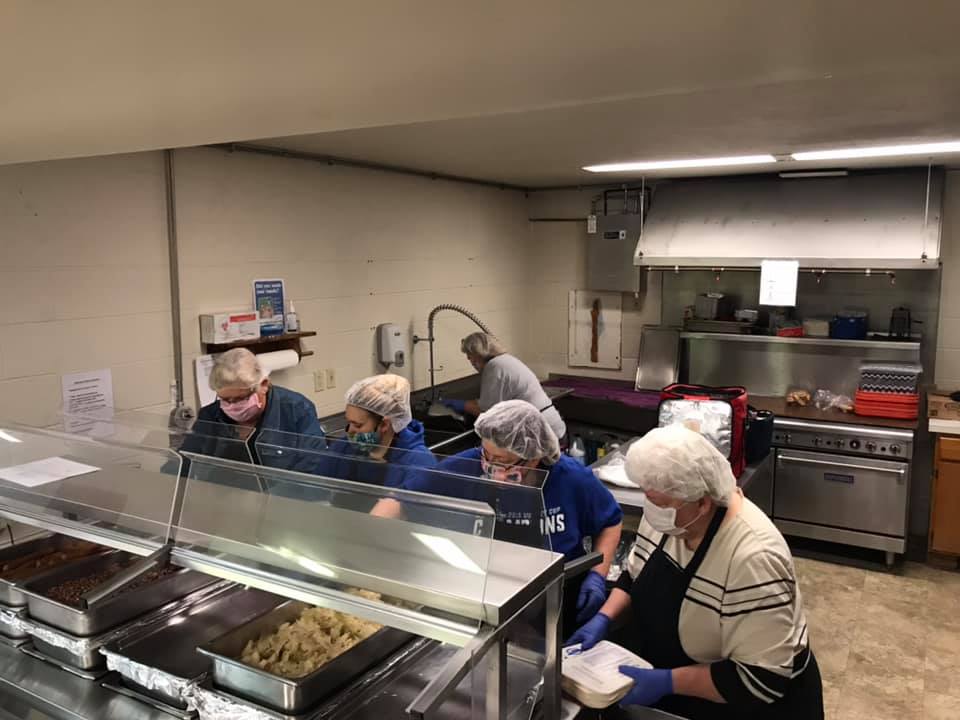
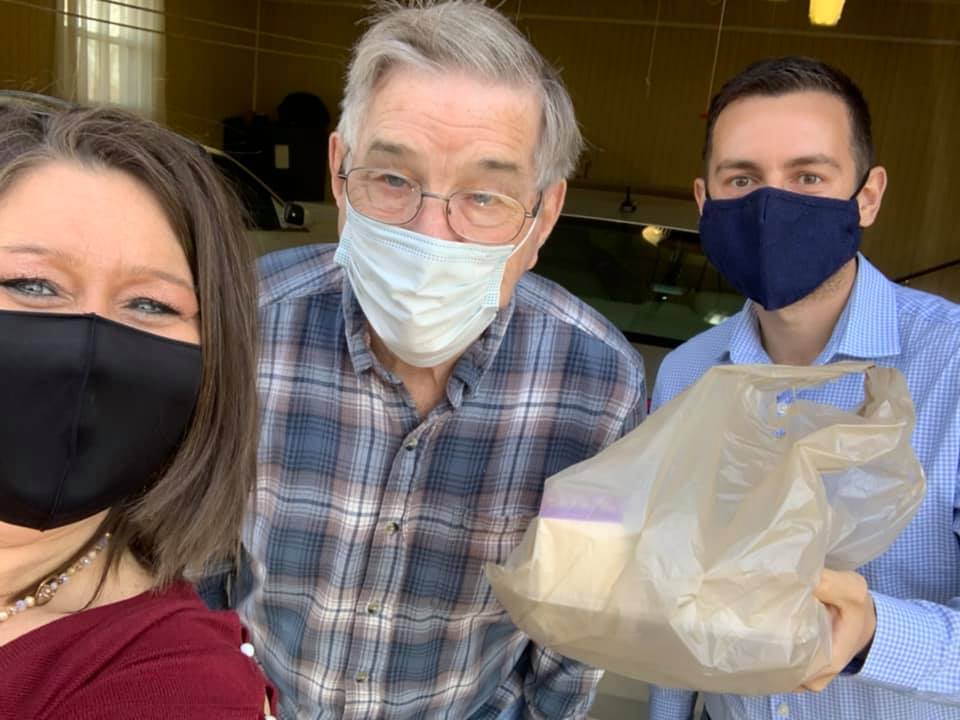
Nonprofits
Pandemic related impacts on many low-income households in the region increased the need for local non-profit charity organizations. For instance, the Salvation Army went from helping 11,000 individuals in 2019 to over 25,000 in 2020. In Henderson alone, they handed out roughly 350 carryout meals daily. Henderson Christian Community Outreach also stayed busy helping families and households fill out forms needed for utility assistance programs, and providing small grants to those most severely impacted financially by the pandemic.
Audubon Area Community Services offered many government aid programs for low-income households across GRADD counties. These took the forms of Low-Income Home Energy Assistance Program, Healthy at Home, and CDBG-CV Utility Assistance, among others.
Audubon Area Community Services hosted several food giveaways with food provided by USDA’s Farmers to Families program. Households did not need to qualify for these food boxes. Instead, any interested individual could receive a box. Hancock county distributed a total of 2,800 boxes worth a total of $111,000 during one giveaway.
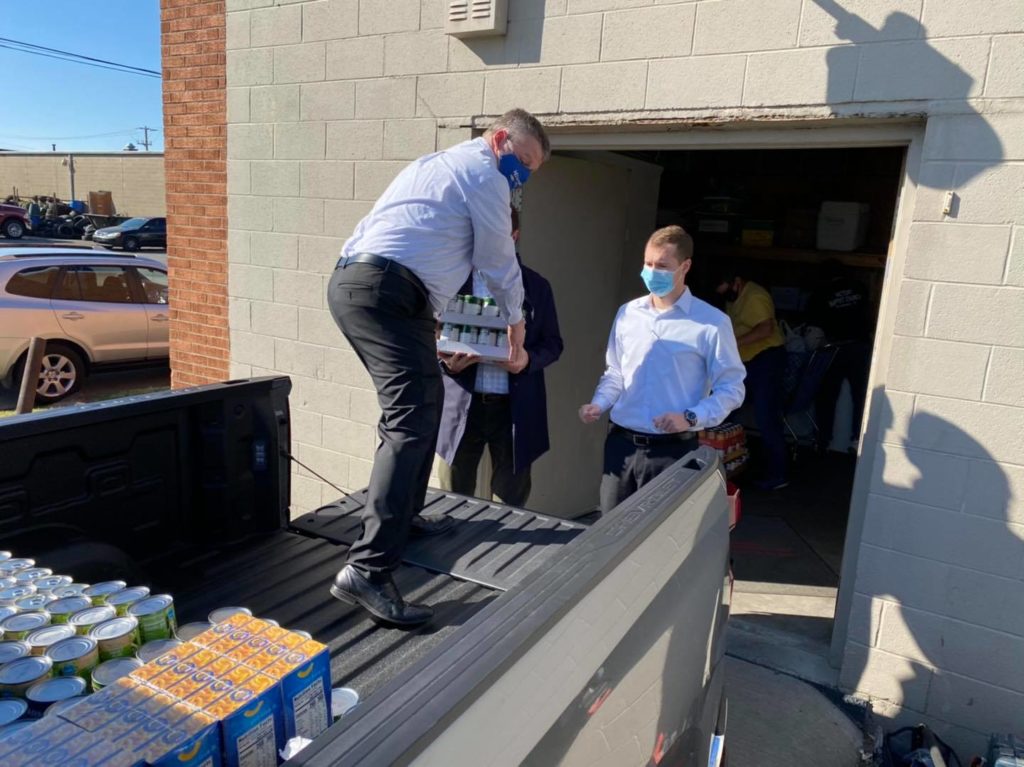
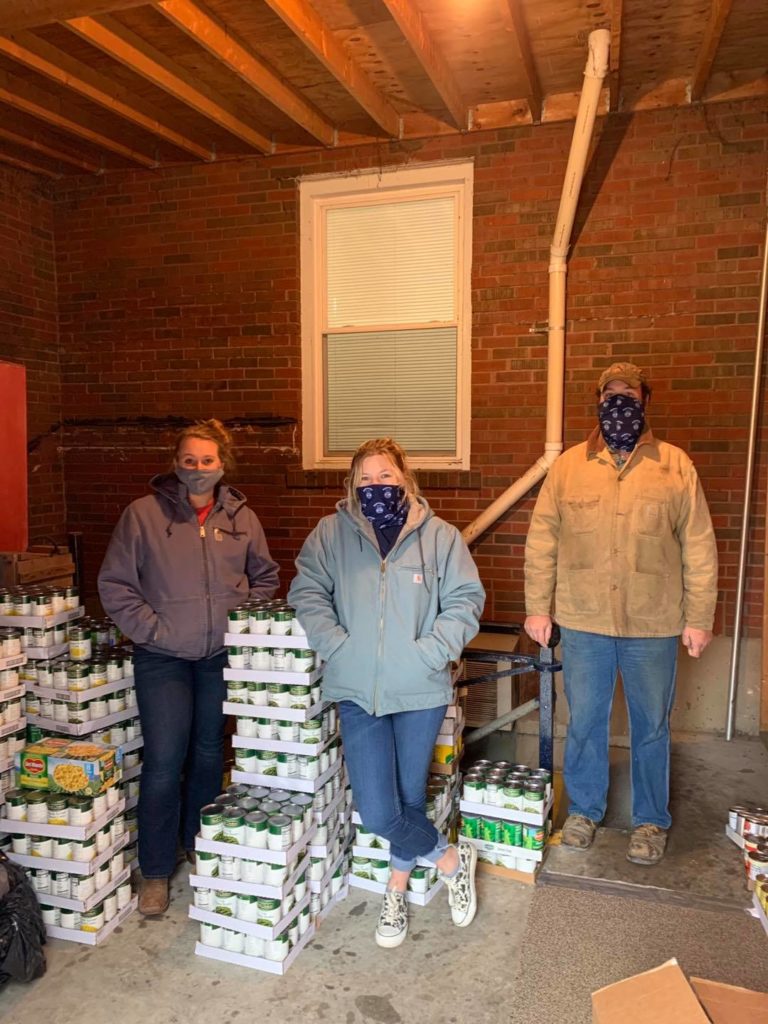
Public Transportation
Henderson and Owensboro are the only cities in the region that provide public transportation services. During the pandemic, Henderson’s bus routes ran at 50% capacity on modified schedules. They offered essential trips only and were on-call for non-emergency medical transportation like appointments and testing.
The Green River Intra-County Transit System (GRITS) provides public transportation across all GRADD counties. The public may ride for a low cost, and Medicaid-eligible clients may ride to Medicaid appointments at no cost. Throughout the pandemic, GRITS took on additional roles to provide more transportation for seniors and to provide free rides to vaccination appointments.
Public Protection
EMS crews across the region followed COVID safety protocols. They wore masks and gloves when entering homes. These crews wore additional PPE like gowns, face shields, and footies when going somewhere they knew had a COVID-positive individual. EMS crews removed all PPE upon arrival at the hospital. Following that, they disinfected the ambulance from top to bottom in preparation for the next run.
Hancock County Fiscal Court opened part of Vastwood Park away from public trails to first responders who wanted to quarantine in campers away from their families. Rental campers were an option for those who did not own their own.
